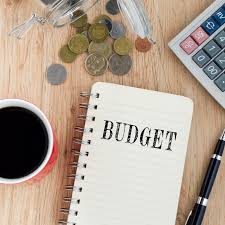 Understanding financial matters is something we all pick up as we go through life, but for some, the gaps in knowledge about certain aspects are wider than with others. Having a basic financial literacy is useful for many reasons and helps us make better decisions when it comes to money. Knowing where to start isn’t always easy, so here are 4 financial topics that you should know more about.
Understanding financial matters is something we all pick up as we go through life, but for some, the gaps in knowledge about certain aspects are wider than with others. Having a basic financial literacy is useful for many reasons and helps us make better decisions when it comes to money. Knowing where to start isn’t always easy, so here are 4 financial topics that you should know more about.
Personal Credit
Your personal credit is something that encompasses not just the lending products you can apply for, but also your credit rating and status. To be able to apply for credit through a lender, it’s a good idea to have an understanding of what lenders look for when assessing your finance application. If say you require a small, short term, no guarantor loan, online lenders can help with flexible terms and affordable repayments, as long as you are not in financial difficulty and can afford it. So many aspects of life are connected to your credit rating, from landlords vetting tenants before agreeing on tenancy, to getting a mobile phone contract approved, anything financially connected to you will lead back to your credit report. It’s a good idea to become familiar with this by using one of the main Credit Reference Agencies of Experian, Equifax, or TransUnion. It’s free to check your current credit score and you can also access your full credit report for a small fee, providing a thorough understanding of how lenders see you financially.
How to Budget
Handling your finances day to day can be tempting to put to the back of your mind, but spending freely throughout the week without checking accounts can lead to problems. If like many people you find your money is not going far enough between paydays, it could be time to start a budget. By this we mean carefully monitor your spending habits and stick to a limit each day or week. The best way to budget is by going through all of your income sources and comparing all essential expenditure such as rent/mortgage, utility bills etc. This should leave you with a disposable income amount to use on non-essential purchases. From here you can work out a budget of how much each week you can spend so that you can avoid running out of money too quickly. This will also help you focus on how much you are spending on certain things and help to cut back on them.
Savings
Alongside being able to budget, having savings is a vital part of your financial outlook. Budget and savings together will help to avoid getting into financial difficulties and not waste your hard-earned income. Thinking about the future and the unexpected will help shape a savings goal. Even if you only have a small amount you can afford to put into savings, starting the habit of putting money aside in a savings account is worthwhile. Having more money saved will also help to avoid an over-reliance on credit and help cover expenses if you lost your job or became ill. Building a savings fund can go further when using products like a cash ISA as you’ll earn interest on your savings each month, helping you to grow your savings quicker.
Insurance
Understanding different types of insurance will help determine which ones you need, with some more common than others. There are insurance products for nearly all aspects of life whether you need to insure your health or home, get accidental damage cover, as well as vehicle and holiday insurance. Some are legally required, such as car insurance if you are a driver, but others are optional, like life insurance. In terms of your finances, you won’t want to spend huge amounts on various insurance policies, so choosing those most important to you is best. Understanding any policies you take out is vital as you’ll want to ensure you can claim without issue when you need it.



No Comments